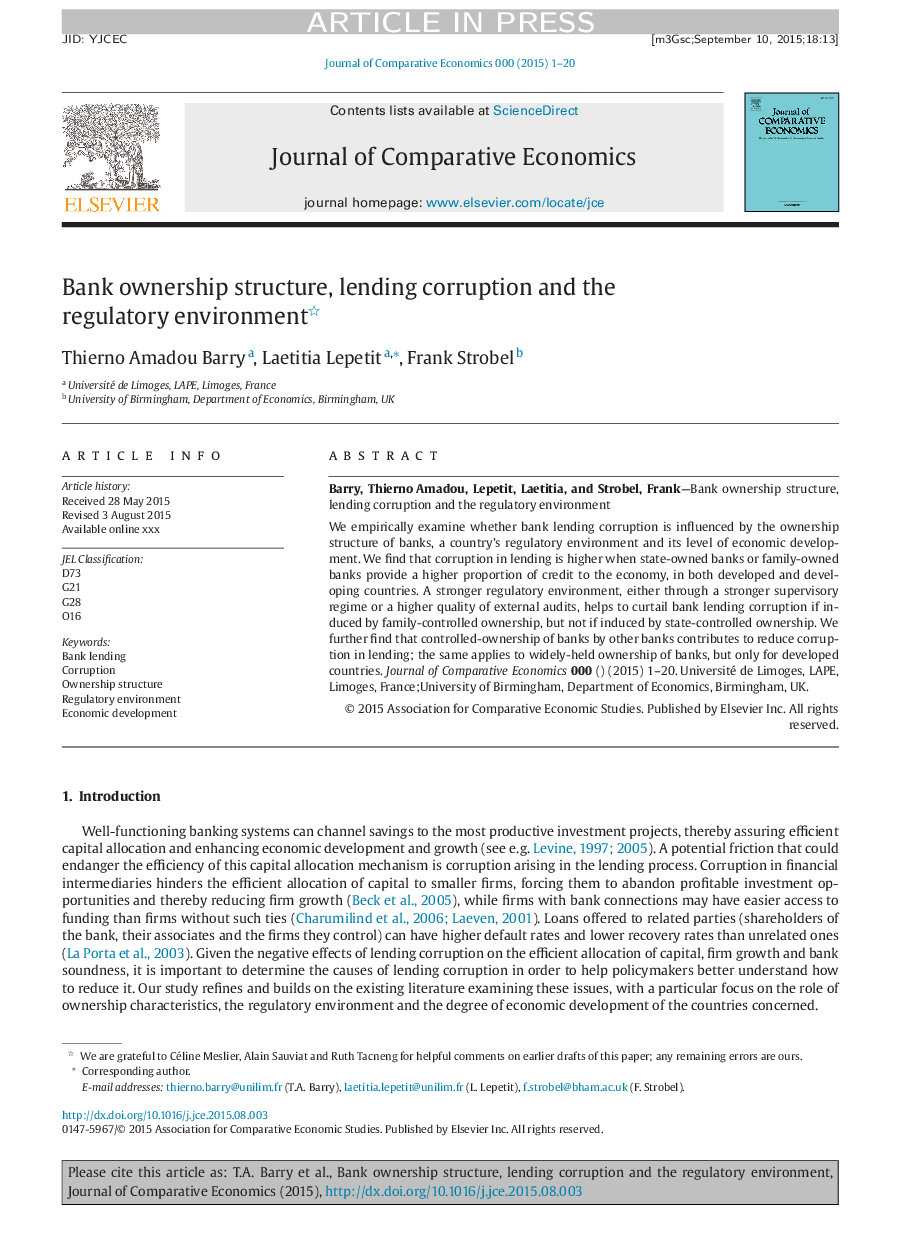| Article ID | Journal | Published Year | Pages | File Type |
|---|---|---|---|---|
| 5092195 | Journal of Comparative Economics | 2016 | 20 Pages |
Abstract
We empirically examine whether bank lending corruption is influenced by the ownership structure of banks, a country's regulatory environment and its level of economic development. We find that corruption in lending is higher when state-owned banks or family-owned banks provide a higher proportion of credit to the economy, in both developed and developing countries. A stronger regulatory environment, either through a stronger supervisory regime or a higher quality of external audits, helps to curtail bank lending corruption if induced by family-controlled ownership, but not if induced by state-controlled ownership. We further find that controlled-ownership of banks by other banks contributes to reduce corruption in lending; the same applies to widely-held ownership of banks, but only for developed countries.
Keywords
Related Topics
Social Sciences and Humanities
Economics, Econometrics and Finance
Economics and Econometrics
Authors
Thierno Amadou Barry, Laetitia Lepetit, Frank Strobel,
